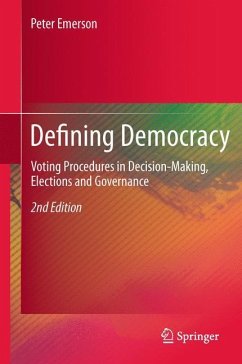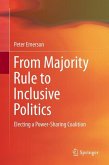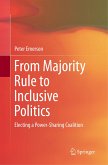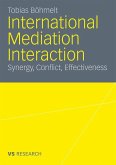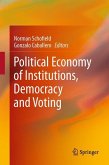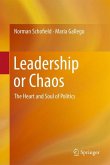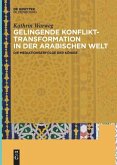Defining Democracy looks both at the theory of why and the history of how different voting procedures have come to be used - or not, as the case may be - in the three fields of democratic structures: firstly, in decision-making, both in society at large and in the elected chamber; secondly, in elections to and within those chambers; and thirdly, in the various forms of governance, from no-party to multi-party and all-party, which have emerged as a result.
"It is a thesis and its wide-ranging and informative overview of various forms of democratic mechanism is conducted in light of this thesis. ... author clearly delights in expounding his thesis and he retains the attention of the reader throughout with engaging insights and entertaining asides. ... Appendices are informative and thought-provoking and make an essential contribution to the book, further demonstrating that the author's thesis is based on an impressively wide historical and geographical scope of knowledge on the topic." (Katy Hayward, Representation, Vol. 51 (2), 2015)
"Peter Emerson's book covers a range of very important issues that stretch from the theory of democracy, across decision-making procedures, to electoral systems. Hence, the book is of extreme importance for students of these areas of political science. ... book is worth reading and studying. Emerson's work is both academic treatise and 'policy paper' advocating new voting procedures that arevery different from those commonly used and that would be highly likely to have far reaching consequences for democratic polities." (Milos Brunclík, Central European Political Studies Review, cepsr.com, Vol. XV (4), 2013)
"It is a handbook on how to organise democracy in different ways. Emerson describes in different kinds of electoral and governmental systems, explains how each works in practice and weighs the pros and cons of each. The result is thought-provoking guide to what democracy actually means and how best it can be achieved." (Books Ireland, October, 2012)
"Peter Emerson's book covers a range of very important issues that stretch from the theory of democracy, across decision-making procedures, to electoral systems. Hence, the book is of extreme importance for students of these areas of political science. ... book is worth reading and studying. Emerson's work is both academic treatise and 'policy paper' advocating new voting procedures that arevery different from those commonly used and that would be highly likely to have far reaching consequences for democratic polities." (Milos Brunclík, Central European Political Studies Review, cepsr.com, Vol. XV (4), 2013)
"It is a handbook on how to organise democracy in different ways. Emerson describes in different kinds of electoral and governmental systems, explains how each works in practice and weighs the pros and cons of each. The result is thought-provoking guide to what democracy actually means and how best it can be achieved." (Books Ireland, October, 2012)
From the reviews of the second edition: "It is a handbook on how to organise democracy in different ways. Emerson describes in different kinds of electoral and governmental systems, explains how each works in practice and weighs the pros and cons of each. The result is thought-provoking guide to what democracy actually means and how best it can be achieved." (Books Ireland, October, 2012)

